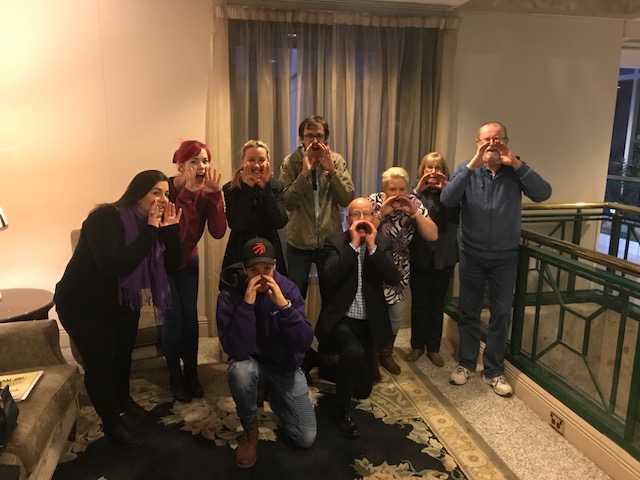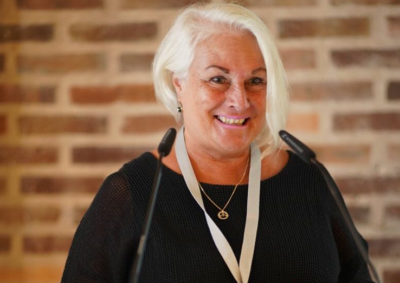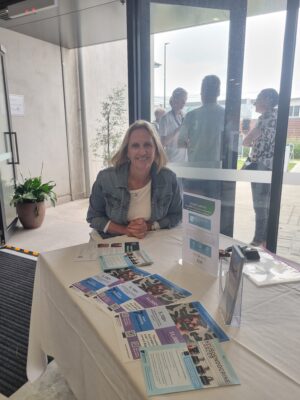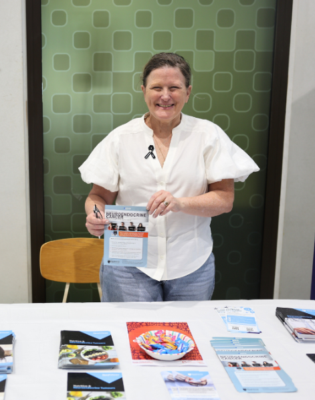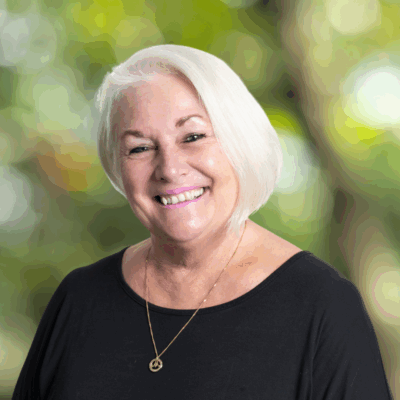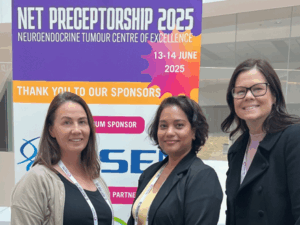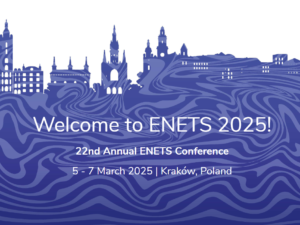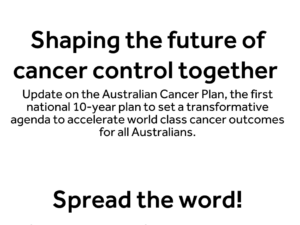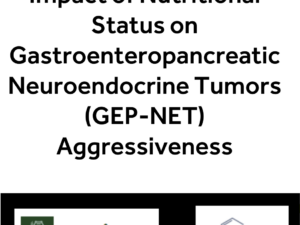Late last year Senator Catrina Bilyk from Tasmania called for the introduction of a Senate Select Committee to look at Funding for Research into low Survival Cancers, after her own personal experience with brain cancer.
277 submissions were made to the committee from patients, carers, patient groups, research institutions, hospitals and clinicans from around the country and can be viewed here. From these submissions Unicorn Foundation CEO Simone Leyden, and patients Sandra Woods, Jan Mumford and Jackie Barreau, had the opportunity to speak further at hearings in Sydney and Melbourne about the lack of funding for research for NET cancers.
We are grateful to the Chair and to all the committe members for shining a light on the inequity in funding, appropriate infrastructure and adequate resources for low survival cancers in Australia.
The full transcripts of the hearings can be read here, however, here are some snippets from those that attended.
Simone Leyden CEO / Co-founder Unicorn Foundation
CHAIR: Thank you. In your submission, you talk about centres of excellence and how one is opening soon at Peter MacCallum Cancer Centre. Can you tell the committee the benefits of centres like that and why it is so important; and maybe how they operate and, for NET patients, what benefits there might be.
Ms Leyden : Absolutely. We have done a lot of global research with our other fellow patient groups around the world, and we definitely see that there are better outcomes for patients who are seen within a centre of excellence—a centre of excellence being where they actually have, in our instance, neuroendocrine tumour multidisciplinary team meeting so their cases are discussed across the gamut of different specialists that our patients have to see from endocrinologists to surgeons and nuclear med physicians. All sorts of different treatments are available to neuroendocrine patients. I say there are so many different options available, but they are not necessarily curative nor do they all work. But, what we see, as I said, is that patients who are seen within a centre of excellence have much better outcomes, be that a longer progression-free survival and maybe also better care because it lessens the isolation and they have the resources available to them…….
The problem, obviously, is that most of those centres are located in metro areas, and we see a huge burden for regional patients. We run a NETs patient support line, which is just our nurse who works very hard three or four days a week on the telephone, and we see that about 40 per cent of those calls come from regional areas. So what we would foresee is, yes, those patients still need to be actually funded or helped to go and be seen at these centres of excellence to have their cases discussed through the MDT. But, ideally, what we would like to see is a buddy system, if you like, where their treating oncologists in their regional areas are in full communication with these centres of excellence so that these patients can still live with their family and their support systems within their home towns as well. That is currently not really happening, but that is something that we would like to implement.
Sandra Woods – NET Patient
Thank you Chair, senators, participants and observers to our witness. My name is Sandra Woods. I am a wife, mother, grandmother, friend, neighbour and functional neuroendocrine cancer patient. As I stand before you to give witness to neuroendocrine cancer inequities, it may appear that I am alone. I am not. Over 10,000 recorded Australian NETs patients stand beside me. Maybe you do not see them. That is because we are invisible—not magically so, but because we are too few in number to make an economic or political impact for those who make decisions about our lives and mandate which treatments and drugs we may or may not have. I know little about the research funding process; I have never needed to know until now.
Once the shock of initial diagnosis has abated, awareness of your limited options raises a fresh horror. Yes, there are drugs and treatments, but not for everyone. We are not equal. The recent federal budget allocated $19 million to support services for breast cancer, $6 million for prostate cancer and absolutely zero for neuroendocrine cancer. The Unicorn Foundation—our support, education, research and advocacy group—was once more passed over. Overworked and exhausted as they are, staff are still striving to be there for us. No-one is there for them. This situation is unsustainable. More than 100 patients per month ring and email for help. Volunteers—often themselves patients and quite sick—are attempting to fill the breach. …..
Jackie Barreau – NET carer
CHAIR: Thank you. Ms Marker or Ms Barreau, do you wish to make an opening statement?
Ms Barreau : I am also a member of Cancer Voices SA. I am also the bereaved mother of one infant affected by a rare childhood cancer, stage 4 neuroblastoma, a solid cancer of the nervous system, almost 19 years ago. It commonly occurs in children under five and is also considered a neuroendocrine tumour, or NET. Currently I have a teenage daughter with a rare subset of NET—she was diagnosed five years ago, at the age of 12—as a result of a genetic mutation. Her condition is currently stable after she underwent two operations and, last year, PRRT therapy here in South Australia. She currently has active disease. There is no cure. It is considered inoperable, and her condition could change at any given time. There are currently approximately 10,000 people affected by NETs, with 1,800 new diagnoses each year in Australia.
It took me two years to find a not-for-profit patient support group in Australia, the Unicorn Foundation, and my determination led to finding this support and more information about my daughter's condition. The onus was really on me as her mother. This empowered me to find the right treatment available, to find specialist NET doctors and, importantly, the research being conducted for NET patients in Australia.
It is clearly evident that patient groups are funding research through their own fundraising efforts, through the generosity of their patients and supporters. Lack of funding leads to lack of support for patients. These are some of the unmet needs of patients with rare or less common cancers. We are the forgotten ones in the current healthcare system.

